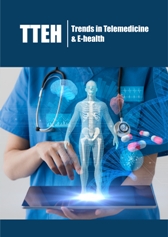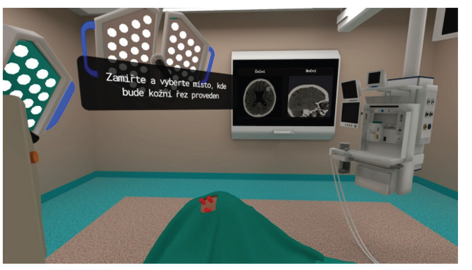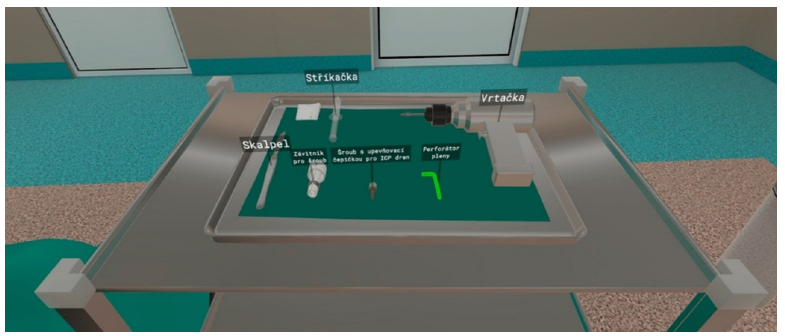- Submissions

Full Text
Trends in Telemedicine & E-health
Integration of Virtual Reality into Medical Education: The Lerco Project and Telemedicine Applications
Doležel Jakub1*, Filip Michal1,2, Kozlovskaya Anastassiya1, Kender Martin1, Novák Jan Sebastián1, Filipová Jitka1 and Přeček Daniel1
1Faculty of Medicine, Center for Information Technology, Artificial Intelligence and Virtual Reality in Medicine, University of Ostrava, Czech Republic
1Faculty of Medicine, Department of Rehabilitation and Sports Medicine, University of Ostrava, Czech Republic
*Corresponding author:Doležel Jakub, Faculty of Medicine, Center for Information Technology, Artificial Intelligence and Virtual Reality in Medicine, University of Ostrava, Czech Republic
Submission: October 22, 2024; Published: November 13, 2024

ISSN: 2689-2707 Volume 5 Issue 1
Abstract
Virtual Reality (VR) has become increasingly prevalent in medical education and healthcare practice. This article explores the use of VR within the framework of the LERCO project, which aims to enhance the quality of medical education through advanced simulation models. The project focuses on the development of modules that allow medical students and healthcare professionals to practice surgical and neurosurgical procedures in a risk-free yet realistic environment.
Keywords:Healthcare professionals; Neurosurgical procedures; Remote monitoring; Telemedicine; Technologies
Introduction
Innovations in medical education are crucial for improving the qualifications of future physicians and healthcare professionals. The development of technologies such as virtual reality and telemedicine enables the simulation of complex surgical procedures and the remote monitoring of patients. The LERCO project, implemented in the Moravian-Silesian region, integrates both technologies with the aim of advancing medical education and optimizing healthcare delivery (Figure 1).
Figure 1:Operating room in virtual reality.

Educational Potential of Virtual Reality in Surgery
Traditionally, medical students gain practical surgical experience only towards the end of their studies. Virtual reality offers the opportunity to access surgical procedures early in the educational process, significantly enhancing their preparedness for real-world clinical practice. Research has shown that VR can be an effective tool in medical education, providing interactive and immersive experiences that foster skill acquisition and improve learning outcomes Jiang et al. [1]. The LERCO project has developed a “VR Surgery” module that simulates operative procedures in a virtual environment. This simulation not only provides students with an understanding of surgical workflows but also allows them to practice the steps repeatedly, without the risk of harming patients. The most advanced module focuses on the simulation of Intracranial Pressure (ICP) sensor insertion. This procedure requires the highest degree of precision and skill, and the module offers users realistic feedback, helping them acquire the necessary skills before performing in a real operating room. Access to such simulations dramatically accelerates students’ adaptation to the complex procedures integral to clinical practice. According to recent reviews, the potential for VR to enhance surgical training is increasingly recognized across educational settings Mergen et al. [2] and Mistry et al. [3]. Currently, additional training modules focused on vertebroplasty, and anterior cervical interbody fusion are also available, broadening the scope of skills students can master in a simulated environment (Figure 2).
Figure 2:Surgical instruments.

Implementation and Future Perspectives
The LERCO project provides a unique opportunity to bridge academic research with clinical practice. The simulation models developed within the project have the potential to become commercially available, not only at the faculty of medicine, University of Ostrava, but also at other medical schools in the Czech Republic and abroad. Future plans include expanding the modules to cover simulations of additional surgical procedures, enabling healthcare professionals to practice a wide array of tasks related to preoperative and postoperative care.
Conclusion
The innovative use of virtual reality and telemedicine applications within the LERCO project represents a significant advancement in medical education and healthcare delivery. VR simulations allow students to gain valuable practical experience before entering the operating room, while telemedicine improves access to and the efficiency of care for patients with chronic conditions. These technologies hold the potential to transform not only medical education but also clinical practice and the delivery of healthcare in the 21st century. The project was supported by the Just transition operational program of the state environmental fund of the Czech Republic as part of the LERCO project (CZ.10.03.01/0 0/22_003/0000003).
References
- Jiang H, Vimalesvaran S, Wang JK, Lim KB, Mogali SR, et al. (2022) Virtual reality in medical students' education: Scoping review. JMIR Med Educ 8(1): e34860.
- Mergen M, Meyerheim M, Graf N (2023) Reviewing the current state of virtual integration in medical education-A scoping review protocol. Syst Rev 12(1): 97.
- Mistry D, Brock CA, Lindsey T (2023) The present and future of virtual reality in medical education: A narrative review. Cureus 15(12): e51124.
© 2024 Doležel Jakub. This is an open access article distributed under the terms of the Creative Commons Attribution License , which permits unrestricted use, distribution, and build upon your work non-commercially.
 a Creative Commons Attribution 4.0 International License. Based on a work at www.crimsonpublishers.com.
Best viewed in
a Creative Commons Attribution 4.0 International License. Based on a work at www.crimsonpublishers.com.
Best viewed in 







.jpg)






























 Editorial Board Registrations
Editorial Board Registrations Submit your Article
Submit your Article Refer a Friend
Refer a Friend Advertise With Us
Advertise With Us
.jpg)






.jpg)














.bmp)
.jpg)
.png)
.jpg)










.jpg)






.png)

.png)



.png)






